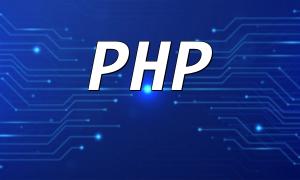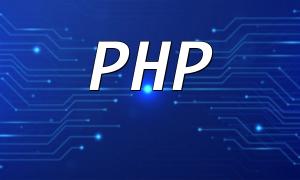PHP is widely used in web development thanks to its simplicity, powerful features, and strong community support. However, to build highly performant and responsive PHP applications, developers must understand the underlying mechanisms of PHP. Through thoughtful code optimization and performance debugging techniques, you can significantly improve execution efficiency and maintainability.
In PHP, frequent function calls—especially inside loops—can degrade performance. One effective way to optimize is to move constant function calls outside of loops:
// Not recommended:
for($i=0; $i<1000; $i++){
echo strlen('hello');
}
// Optimized approach:
$str = 'hello';
for($i=0; $i<1000; $i++){
echo strlen($str);
}
This prevents unnecessary recalculations and improves runtime performance.
Although there is little performance difference between local and global variables in PHP, global variables can be more efficient when data needs to be shared across multiple functions:
// Not recommended:
function add($a, $b){
$total = $a + $b;
return $total;
}
function subtract($a, $b){
$total = $a - $b;
return $total;
}
// Optimized version:
$total = 0;
function add($a, $b){
global $total;
$total = $a + $b;
return $total;
}
function subtract($a, $b){
global $total;
$total = $a - $b;
return $total;
}
Using a global variable avoids re-declaring and reallocating memory repeatedly within functions.
Performance profilers help identify bottlenecks in your code. One of the most commonly used profilers in PHP is Xdebug, which can generate detailed execution reports and render them in an HTML-friendly format, making it easier to locate and resolve performance issues.
Caching reduces redundant operations such as repeated database queries. Tools like Memcached and Redis are highly effective for caching frequently accessed data in memory, dramatically increasing data retrieval speed and overall system performance.
Input/output operations are among the most performance-heavy tasks in PHP. Here’s how you can make file reading more efficient:
// Not recommended:
$file = fopen('hello.txt','r');
while(!feof($file)){
echo fgets($file);
}
fclose($file);
// Optimized approach:
$content = file_get_contents('hello.txt');
echo $content;
Using file_get_contents() is generally faster and more resource-friendly for small to mid-sized files.
Improving PHP performance requires a multi-faceted approach. Reducing function calls, optimizing variable usage, leveraging in-memory caching, and employing professional debugging tools are essential techniques for writing efficient, scalable PHP applications. A deep understanding of PHP internals equips developers with the knowledge to write cleaner, faster, and more maintainable code.









